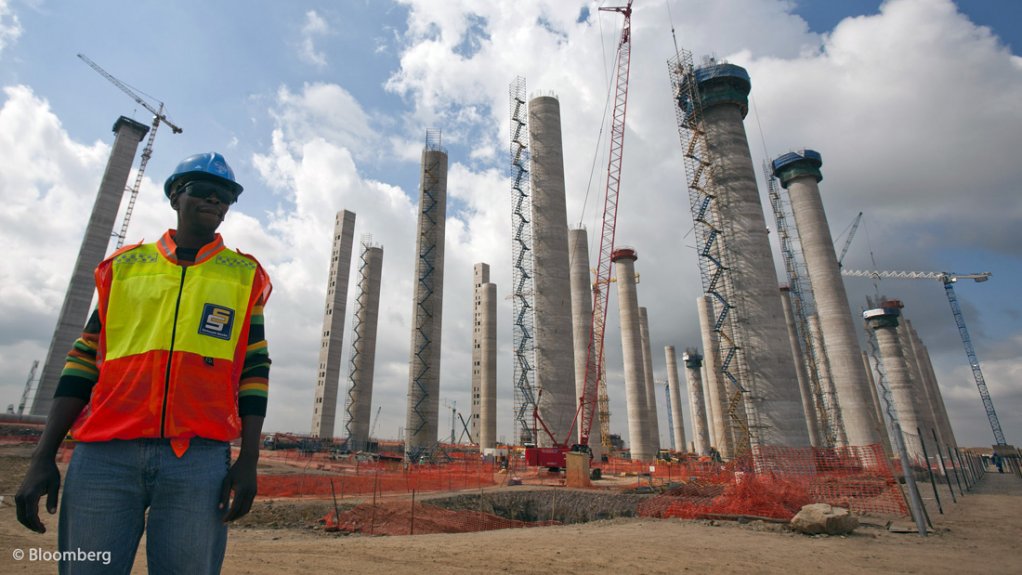The primary construction contractor for the Medupi and Kusile coal-fired power stations, Hitachi Power Africa, has identified rampant skills shortages in the local engineering and construction sector as a primary challenge in the successful completion of large-scale infrastructure projects on time and within budget.
Speaking at a Department of Science and Technology seminar on Thursday, Hitachi Power Africa fleet director for Medupi and Kusile Mark Marais said a key constraint facing the company during the construction of both power stations was a shortage of experienced engineers, construction and fabrication supervisors and artisans.
“There is, in particular, a shortage of experienced A-class welders,” he noted.
Marais’ comments came a day after Eskom commercial director Dan Marokane told Parliament’s Portfolio Committee on Energy that the parastatal was now in a position to make performance bond demands against the Hitachi Japan subsidiary for failing to deliver on its construction contracts at Medupi.
Sapa reported earlier on Wednesday that Eskom had demanded that Hitachi restore its performance bonds to 100% to mitigate losses from any further failure by the company to meet welding standards on a R20-billion contract to construct the boilers at Medupi.
This followed allegations against the firm of faulty welding and a failure by a subcontractor hired by the company to heat-treat welds to ensure they could withstand operational stress.
Sapa reported that, should the power utility call in all bonds, it would recover R1.5-billion from Hitachi, the biggest contractor at the plant and whose poor performance was alleged to have contributed to driving up the estimated cost of completion of Medupi to R105-billion.
“We have asked them to increase these bonds to that level so that they have more skin in the game. The bonds are now sitting at about 50%,” said Marokane.
While refusing to be drawn on the controversy surrounding the company’s alleged poor performance, Marais alluded to the challenges faced by welders on site as a central driver of potentially substandard work.
“Mirror welding is required on projects such as Kusile and Medupi, but this can only be performed by A-class welders. Mirror welding is extremely difficult; I can’t even tie my shoelaces while looking in the mirror,” he commented, adding that there “could not be errors” during welding.
Marais further emphasised the importance of managing the “natural” clash of objectives and interests among stakeholders, such as labour, government, the contractor and the subcontractor, in public infrastructure development projects.
He added that the success of such infrastructure projects lay not only in managing the “iron triangle” of schedule, cost and quality, but in satisfying several other performance criteria, including safety norms, environmental compliance and the management of labour and union expectations.
Citing an earlier research report by audit, tax and advisory firm KPMG, Marais said factors influencing the success of large-scale infrastructure projects included the project environment, political control, the role of national government and the effectiveness of procurement and financing systems.
“Critically, the report found that political institutions that made decisions about infrastructure projects needed to have the authority to see them through.
“Government needs to provide clarity by defining the rules for approving projects and the disbursement of central funds, as well as providing predictability for the scale of future funding,” he commented.
In addition, projects required “political legitimacy”, as there was unlikely to be long-term support for a project if the population did not understand its purpose.
Alluding to Eskom’s empowerment requirements that were inherent in the awarding of local tenders, Marais noted that the selection of the appropriate strategic local partner was also central to a project’s success.
In addition, timelines had been affected by “a culture of striking, often accompanied by violence and associated low levels of productivity,” he said.
Despite the controversy surrounding its performance on the Medupi contract, he confirmed that the company would pursue the maintenance contracts for both power stations once completed, and would also bid for the construction tender for the third proposed new coal-fired power station – Coal 3.
While Eskom had initially planned to have the first unit at Medupi on line by the end of this year, this has been delayed until the second half of next year.
EMAIL THIS ARTICLE SAVE THIS ARTICLE
To subscribe email subscriptions@creamermedia.co.za or click here
To advertise email advertising@creamermedia.co.za or click here











